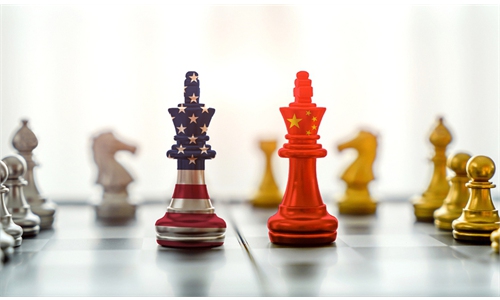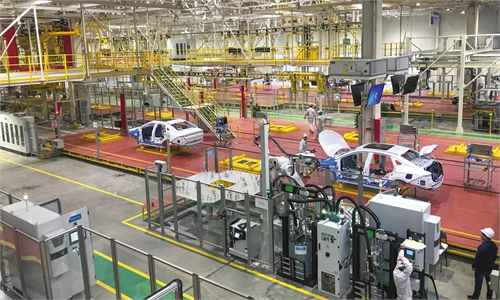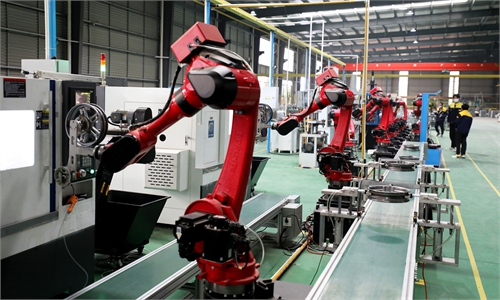
Illustration: Chen Xia/Global Times
It's not difficult for US observers and public intellectuals to find that Tesla and Apple are reportedly on the list of companies registered for the first China International Supply Chain Expo (CISCE), which is scheduled to be held from November 28 to December 2 in Beijing.Despite some Western political elites' "de-risking" rhetoric, US companies are still seeking to expand cooperation with China's comprehensive industrial chain.
At a time when China-US economic relations have reached another critical juncture, especially after the two sides had agreed to promote and strengthen dialogue and cooperation in various fields, US companies' attitude toward China's supply chain deserves the serious attention of top US officials, as it reminds all of the necessity to reduce the drag on bilateral cooperation in supply chains.
From Tesla to Apple, leading US corporations are reportedly accelerating their push into countries including India, with a "China plus one" strategy - a business approach that encourages investors to diversify by investing not just in China.
It is understandable that it may create a false impression, namely the relationship between Western companies and China's supply chain is weakening, or, to some extent, a "de-risking" policy targeting China is having an effect.
However, a closer look at the global supply chain shows that the opposite is true.
In June, when asked whether Apple plans to shift its supply chain from the Chinese mainland to other part of the world, Young Liu, CEO and chairman of Hon Hai Technology Group (Foxconn), Apple's major supplier, explicitly said "No." As reported by Bloomberg, China has long been at the heart of Apple's supply chain.
The upcoming CISCE offers a window to observe the resilience of the supply chain between China and the US, which is much stronger than politicians in Washington might have imagined. As reported, the expo will have 26 percent international exhibitors from 55 countries and regions, of which about 20 percent will be US companies.
A paper presented in August at the Federal Reserve Bank of Kansas City's annual Jackson Hole conference shows that China remains embedded in US supply chains, even as American firms have taken steps to reduce direct imports from China.
Some economists believe that although China's share in US imports has decreased, China has strengthened trade and investment relations with countries such as Vietnam and Mexico, which means that the US is likely to maintain indirect connections with China through supply chains with these third countries.
In this process, indirect US supply chain links to China remain intact. Along some dimensions - through China's economic ties with third countries - these indirect links have even intensified. If Chinese companies export components to these third countries which assemble them into final products and ship them to the US, China will retain its role as an important participant in the US supply chain.
China's labor costs have risen compared with some other emerging-market countries in recent years. As a result, supply chain restructuring is a natural process. Labor-intensive manufacturing companies are free to move production out of China - or out of anywhere - in pursuit of cost optimization, as long as such industry chain restructuring is driven by economic rather than geopolitical factors.
China is not afraid of industry chain restructuring. It can be seen that in the process of global industry chain restructuring, China's supply chain advantages have been strengthened, rather than weakened. In Asia, intermediate goods imports from the Chinese mainland account for close to 20 percent of all component imports on average, according to a report released by banking and financial services group HSBC earlier this year.
As China moves up the value chain, the country is becoming more of an exporter than an importer of intermediate goods used by manufacturers elsewhere, helping strengthen the connectivity and thus the competitiveness of global supply chains, the HSBC report said.
It is undeniable that China has remained a positive force in maintaining supply chain stability. The CISCE adds to evidence that American political elites' efforts to push forward "de-risking" from China are futile and doomed to fail.
It is widely believed that China-US economic cooperation is facing a window of stability and improvement. It is hoped that Washington can seize this opportunity to strengthen, rather than hinder, industry chain cooperation with China.
The author is a reporter with the Global Times. bizopinion@globaltimes.com.cn



